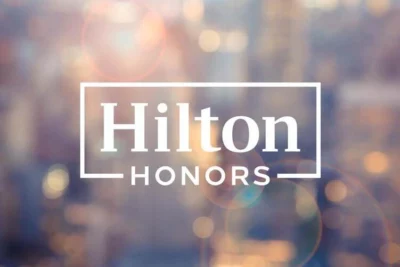Why – financially – hotel loyalty programmes are different to airline schemes
Links on Head for Points may support the site by paying a commission. See here for all partner links.
I am in Washington at the moment meeting with the Hilton Honors team – I even got to meet Hilton’s CEO, Chris Nassetta, yesterday. A few articles from this trip will follow over the next week.
One of the interesting points that came up during a discussion on Monday was about the funding of hotel loyalty schemes vs airline ones.
Frequent flyer schemes are generally seen as the greatest marketing invention of the last 30 years. As well as being hugely successful, they are also hugely profitable. Avios Group is approaching an operating profit of £200m per year which would value it at around £3bn as a stand-alone business – although in the post-Aeroplan world it would be close to impossible to float a frequent flyer scheme.

Aer Canada sold off its frequent flyer scheme, Aeroplan, and pocketed a substantial amount of money. A few years down the line, it announced that it was dumping Aeroplan and starting a new loyalty scheme, leaving Aeroplan – now Aimia – a financial wreck.
Back to the point ….
You might think that hotel loyalty schemes are also a licence to print money. You might be surprised to find that they are not. You may be even more surprised to find that they are not allowed to make money.
This is how it works. Virtually all branded hotels these days operate as franchises or management contracts. The operator of the hotel pays various fees to the brand owner – in this case Hilton Worldwide – for the use of the brand, the use of the reservation system and for marketing.
The money paid for marketing is ring-fenced. It can only be used for promotional activity, including running the loyalty scheme, and cannot be pocketed by Hilton. Obviously there will be management charges etc etc but fundamentally what comes in must go out.
In theory, whilst there will always be changes to the way hotel loyalty schemes operate, they should be cost neutral at the end of the day. The last round of Hilton Honors changes, for example, shifted the balance towards greater rewards for heavy stayers with Blue members receiving fewer points.
Devaluations are often driven by the need to pay more to hotel owners for redemption rooms. Most hotel loyalty schemes have to pay something close to the standard daily rate for reward nights when a hotel is over 95% full. As global hotel occupancy improves – as it has done annually for some time – there will be more nights when the scheme has to effectively pay the standard rate to the hotel, and this money may need to be clawed back by raising the points cost of some hotels. Hotels also have to be compensated for funding elite benefits.
At the end of the day, Avios and the other major global frequent flyer schemes are there to make a profit – something they do very well. The hotel loyalty schemes are not.
PS. If you are not a regular Head for Points visitor, why not sign up for our FREE weekly or daily newsletters? They are full of the latest Avios, airline, hotel and credit card points news and will help you travel better. To join our 70,000 free subscribers, click the button below or visit this page of the site to find out more. Thank you.

Hotel offers update – July 2025:
Want to earn more hotel points? Click here to see our complete list of promotions from the major hotel chains or use the ‘Hotel Offers’ link in the menu bar at the top of the page.
SPECIAL OFFER: Until 15th July 2025, the sign-up bonus on the Marriott Bonvoy American Express Card is TRIPLED to 60,000 Marriott Bonvoy points. This would convert into 25,000 Avios or into 40 other airline schemes. It would also get you at least £300 of Marriott hotel stays based on our 0.5p per point low-end valuation. Other T&C apply and remain unchanged. Click here for our full card review and click here to apply.
SPECIAL OFFER: Until 14th August 2025, the sign-up bonus on the Hilton Honors Plus debit card is TRIPLED to 30,000 Hilton Honors points. You will also receive Gold Elite status in Hilton Honors for as long as you hold the card. Click here for our full card review and click here to apply.
Want to buy hotel points?
- Hilton Honors is offering a 100% bonus when you buy points by 24th July 2025. Click here to buy.
- IHG One Rewards is offering a 100% bonus when you buy points by 17th July 2025. Click here to buy.
- Marriott Bonvoy is offering a 30% to 50% bonus (varies by individual) when you buy points by 16th July 2025. Click here to buy.
- World of Hyatt is offering a 20% bonus when you buy points by 21st July 2025. Click here to buy.



 Rob
Rob 





Comments (62)